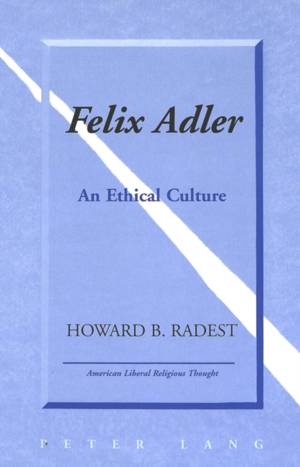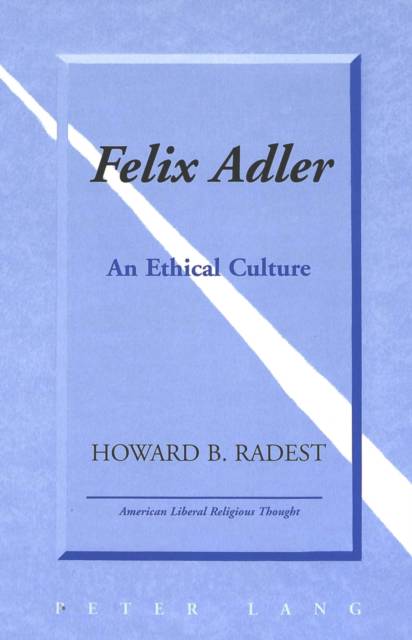
- Afhalen na 1 uur in een winkel met voorraad
- Gratis thuislevering in België vanaf € 30
- Ruim aanbod met 7 miljoen producten
- Afhalen na 1 uur in een winkel met voorraad
- Gratis thuislevering in België vanaf € 30
- Ruim aanbod met 7 miljoen producten
Zoeken
Omschrijving
Felix Adler, founder of the Ethical Culture Societies and of the Ethical Culture Fieldston Schools, was a social reformer and a religious radical. This book explores his proposals for the democratization of the moral ideal and the application of this concept to the reconstruction of industrial society. Challenging the moral credentials of both capitalism and socialism, he proposed a «vocational democracy» in which the talents of each human being were to be expressed in vocation, in politics, and in schooling. As a reformer, he moved freely from the world of experience to the world of ideas. As a religious radical he drew upon this dialectical move to reconstruct what he called the «spiritual» universe. Opposed to otherworldliness, it was for him an evolutionary outcome of the process of «ethicizing» experience, that is of reconstructing work, school, and politics in the light of the moral ideal. Unlike the utopians, however, he insisted that frustration and the «pains of experience» were inevitable. Although a progressive and a radical, he avoided the trap of facile optimism. He developed, therefore, an unusual integration of religious liberalism, social and educational reform, and a tragic sense of life.
Specificaties
Betrokkenen
- Auteur(s):
- Uitgeverij:
Inhoud
- Aantal bladzijden:
- 181
- Taal:
- Engels
- Reeks:
- Reeksnummer:
- nr. 5
Eigenschappen
- Productcode (EAN):
- 9780820436821
- Verschijningsdatum:
- 1/03/1998
- Uitvoering:
- Hardcover
- Formaat:
- Genaaid
- Afmetingen:
- 160 mm x 230 mm
- Gewicht:
- 439 g

Alleen bij Standaard Boekhandel
+ 106 punten op je klantenkaart van Standaard Boekhandel
Beoordelingen
We publiceren alleen reviews die voldoen aan de voorwaarden voor reviews. Bekijk onze voorwaarden voor reviews.











